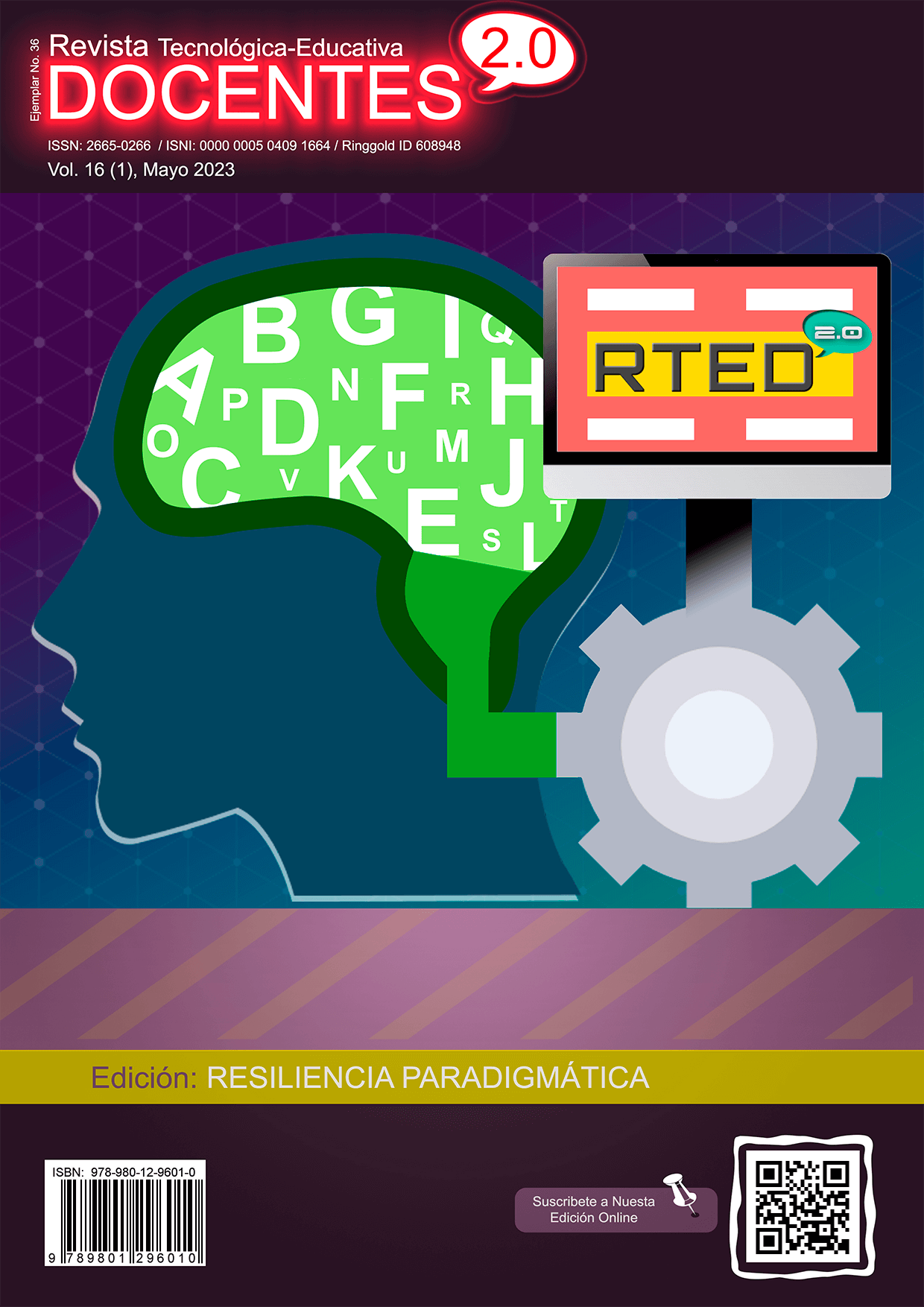From Homogenity to Diversity at School
 DOI:
https://doi.org/10.37843/rted.v16i1.368
DOI:
https://doi.org/10.37843/rted.v16i1.368
Main Article Content
Abstract
School is in charge of getting students to learn to have a harmonic coexistence in the society. However, the reality shows how difficult this task is for educators when facing the diversity of the whole school community. This fact makes that educators prefer the homogenization of all processes instead of attending that diversity. In this way, it is necessary to analyze the role of the school in the transformation that is needed to create participative and democratic environments where others are recognized from his diversity as an individual or as a group, taking into account the research literature review that there is on the field. This analisis let us give proof of the challenges education has to comprehend diversity as a key element for the school coexistence which contributes to make the school be a space of colective construction where different is understood as something inherent of human kind.
Downloads
Metrics
Article Details

This work is licensed under a Creative Commons Attribution-NonCommercial-NoDerivatives 4.0 International License.
Those authors who have publications in our journal accept the following terms:
- When a work is accepted for publication, the author retains rights of reproduction, distribution of his/her article for exploitation in all countries of the world in the format provided by our magazine and any other magnetic medium, optical, and digital.
- Authors will retain their copyright and guarantee the journal the right first to publish their work, which will be simultaneously subject to the Creative Commons Acknowledgment License (Attribution-NonCommercial-NoDerivatives 4.0 International (CC BY-NC-ND 4.0)). That allows third parties to copy and redistribute the material in any medium or format, under the following conditions: Acknowledgment - You must properly acknowledge authorship, provide a link to the license, and indicate if any changes have been made. You may do so in any reasonable way, but not in a way that suggests you have the licensor's endorsement or receive it for your use. NonCommercial - You may not use the material for a commercial purpose. NoDerivatives - If you remix, transform, or build from the material, you cannot broadcast the modified material. There are no additional restrictions - You cannot apply legal terms or technological measures that legally restrict you from doing what the license allows.
- Authors may adopt other non-exclusive license agreements to distribute the published version of the work (e.g., deposit it in an institutional archive or publish it in a monographic volume) provided that the initial publication in this journal is indicated.
- Authors are allowed and recommended to disseminate their work through the Internet (e.g., in institutional telematic archives, repositories, libraries, or their website), producing exciting exchanges and increasing the published work's citations.
- Request of withdrawal an article has to be done in writing by the author to the Editor, becoming effective after a written response from the Editor. For this purpose, the author or authors will send correspondence via e-mail: [email protected].
- The author will not receive financial compensation for the publication of his work.
- All Docentes 2.0 Journal publications are under the Open Journal System (OJS) platform at: https://ojs.docentes20.com/.
References
Bauman, Z. (2003). Modernidad líquida. Fondo de cultura económica.
Delors, J. (1996). La educación encierra un tesoro. Informe a la Unesco de la Comisión Internacional sobre la educación para el siglo XXI. https://unesdoc.unesco.org/ark:/48223/pf0000109590_spa
Fondo de las Naciones Unidas para la Infancia. (marzo de 2019). UNICEF lanza campaña “convivencia escolar sin violencia”. https://www.unicef.org/chile/comunicados-prensa/unicef-lanza-campa%C3%B1a-convivencia-escolar-sin-violencia#:~:text=A%20nivel%20mundial%2C%20la%20mitad,estudiantes%20(UNICEF%2C%202018).
Han, B. C. (2017). La expulsión de lo distinto. Herder Editorial.
Magendzo, A. (2006). El ser del otro: un sustento ético-político para la educación. Polis Revista de la Universidad Bolivariana 5(15), pp. 1-15. https://www.redalyc.org/articulo.oa?id=30517306007
Meirieu, P. (1998). Frankenstein educador. Laertes S.A Ediciones.
Pineau, P., Dussel, I. & Caruso, M. (2009). La escuela como máquina de educar. Paidós.
Resolución 70/1 de la Asamblea General “Transformar nuestro mundo: la agenda 2030 para el desarrollo sostenible” A/RES/70/1 (21 de octubre de 2015), disponible en: https://undocs.org/es/A/RES/70/1
Skliar, C. (2015). Preguntar la diferencia: cuestiones sobre la inclusión. Revista Sophia, 11(1), 33-43. https://dialnet.unirioja.es/descarga/articulo/5163702.pdf
Skliar, C. (2017). Pedagogía de las diferencias. Centro de publicaciones educativas y material didáctico.
Squella, A. (1999). Pluralidad, pluralismo y tolerancia en la sociedad chilena actual. Perspectivas 2, pp. 519-543. http://www.dii.uchile.cl/~revista/ArticulosVol2-Especial/08.pdf
Touraine, A. (1997). ¿Podremos vivir juntos? Fondo de cultura económica.






